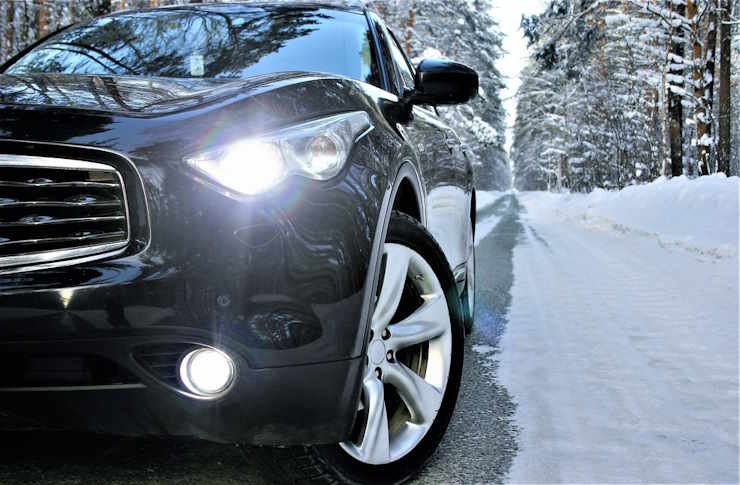Understanding the Cost Structure of Yokohama Winter for Buyers
Winter driving presents unique challenges that require specialized tires for optimal safety and performance. Yokohama winter tires have become popular options for drivers seeking reliable traction and handling during cold-weather conditions. However, understanding the pricing structure of these tires can be complex due to the various factors that influence their cost. This article breaks down what determines Yokohama winter tire prices, helping buyers make informed decisions when investing in these seasonal necessities.

What Determines Yokohama Winter Price Ranges?
The price of Yokohama winter tires varies significantly based on several key factors. Tire size is perhaps the most immediate determinant—larger tires for SUVs and trucks generally cost more than those designed for compact cars. The specific model within the Yokohama winter lineup also impacts pricing, with premium offerings featuring advanced technologies commanding higher prices. Additionally, specialized tread patterns and rubber compounds designed for extreme winter conditions typically add to the cost compared to all-season alternatives.
Manufacturing complexity plays another crucial role in price determination. Yokohama’s advanced winter tires incorporate specialized rubber compounds that remain flexible in extreme cold temperatures while maintaining excellent grip on ice and snow. These specialized formulations and the research behind them contribute to the overall pricing structure. Performance ratings, such as those for snow traction and ice braking, also influence where a particular tire falls within the price spectrum.
Yokohama Winter Price Guide
Yokohama offers winter tires across several price tiers to accommodate different budgets and requirements. Entry-level options like the Yokohama iceGUARD iG51v typically range from $90 to $150 per tire for standard passenger vehicle sizes. These provide reliable winter performance without some of the premium features found in higher-end models.
Mid-range options such as the iceGUARD iG52c usually cost between $120 and $180 per tire, offering enhanced winter performance with improved ice traction and snow handling. For drivers seeking premium performance, the BluEarth Winter V905 and iceGUARD iG65 models represent the high end of Yokohama’s winter tire lineup, with prices typically ranging from $150 to $250 per tire depending on size and specific application.
It’s important to note that larger sizes for SUVs and trucks generally add 20-40% to these base prices, as they require more materials and different construction methods to handle heavier vehicles.
Yokohama Winter Price Insights
Seasonal timing significantly impacts the cost of Yokohama winter tires. Prices typically peak during the early winter months when demand is highest, while end-of-season clearances in late winter or early spring often feature discounts of 10-25%. Savvy buyers can take advantage of these seasonal fluctuations by purchasing during off-peak periods.
Regional factors also influence pricing. Areas with consistently harsh winters often see higher baseline prices due to sustained demand, while regions with occasional winter weather might offer more competitive pricing. Additionally, urban markets with multiple tire retailers typically provide more competitive pricing compared to rural areas with limited options.
Many retailers offer installation packages that bundle the tire purchase with mounting, balancing, and sometimes warranty coverage. These packages can represent better value than purchasing tires and services separately, though the upfront cost appears higher.
Common Yokohama Winter Models and Price Comparison
Below is a comparison of popular Yokohama winter tire models and their typical price ranges for standard passenger vehicle sizes (195/65R15 to 225/45R17):
| Tire Model | Best For | Key Features | Price Range (per tire) |
|---|---|---|---|
| iceGUARD iG51v | SUVs & Light Trucks | Triple 3D sipes, directional tread pattern | $95-$160 |
| iceGUARD iG52c | Passenger Cars | Microbit rubber compound, unique tread blocks | $120-$180 |
| BluEarth Winter V905 | Performance Vehicles | High-density compound, asymmetric tread | $150-$220 |
| iceGUARD iG65 | Premium Sedans/SUVs | Absorptive slush grooves, triple action polymer | $170-$250 |
| iceGUARD G075 | Crossovers/SUVs | 3D triple sipes, specialized winter compound | $140-$200 |
Prices, rates, or cost estimates mentioned in this article are based on the latest available information but may change over time. Independent research is advised before making financial decisions.
Understanding Total Ownership Expenses
The cost of Yokohama winter tires extends beyond the initial purchase price. Total ownership expenses include installation costs, which typically range from $15 to $25 per tire for mounting and balancing. Many retailers also charge disposal fees for old tires (approximately $2-$5 per tire) and valve stem replacement fees ($2-$10 per tire).
Tire pressure monitoring system (TPMS) service may be required when installing winter tires, adding $5-$10 per wheel. Some drivers opt for separate winter wheels (“winter packages”), which increases upfront costs but simplifies seasonal changeovers and prolongs the life of both tire sets by minimizing mounting and dismounting cycles.
Maintenance costs should also be considered. Winter tires typically last 3-4 seasons of normal use, though this varies based on driving conditions and habits. Regular rotation (approximately $20-$40 per service) extends tire life and maintains even wear. Additionally, proper storage during off-seasons helps preserve the tires’ integrity and performance characteristics.
While Yokohama winter tires represent a significant investment, their specialized design helps maintain safety and mobility during challenging winter conditions. The enhanced traction and handling they provide can prevent accidents and reduce the likelihood of becoming stranded in winter weather—factors that, while difficult to quantify, add considerable value beyond the purchase price.
When evaluating total cost, consider that higher-quality winter tires often provide better longevity and performance throughout their lifespan, potentially offering better long-term value despite higher initial prices. Most Yokohama winter tires come with treadwear warranties ranging from 30,000 to 45,000 miles, providing some protection for this investment.




